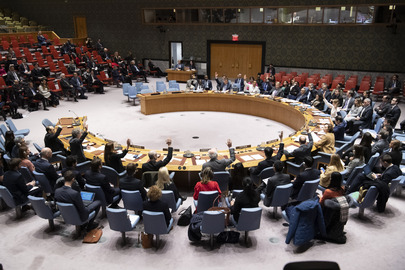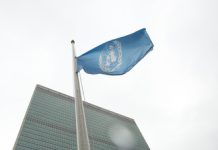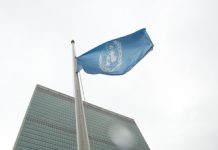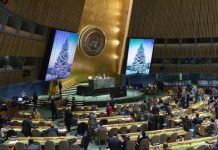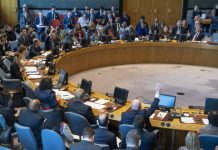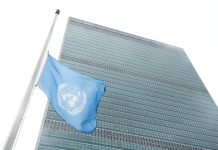Commissioner Hanny Megally led the team, which met with officials, including in the Ministries of Justice and Foreign Affairs.
Discussions covered justice for victims and families, the protection of mass graves and evidence, and continued engagement with the Commission, which was established by the UN Human Rights Council in August 2011.
Willingness to engage
Mr. Megally welcomed the willingness of the new authorities to continue engaging with the Commission on future visits.
This marks a significant shift as the former government had denied the Commission access since the start of its mandate.
“We commend the new authorities for improving the protection of mass graves and evidence in detention centres, and encourage them to pursue these efforts further, also by utilizing relevant Syrian civil society organizations and international actors,” he said.
Accountability for abuses
The Commission visited Damascus and surrounding areas, including detention centres that have been a focus of its investigations, as well as mass grave sites.
“Standing in tiny, windowless cells, still filled with stench and marked by unimaginable suffering, was a stark reminder of the harrowing accounts we have documented over nearly 14 years of investigations,” said Mr. Megally.
“These abuses must never be repeated again and those responsible must be held accountable.”
Renewed sense of optimism
In meetings with Syrians, including those returning after years of exile, Mr. Megally noted a renewed sense of optimism and eagerness to participate in a new Syria built on respecting human rights.
Note: I think it’s fine the way you have it.
The Commission was informed that barriers to civil society engagement, such as the registration of organizations, have eased and it looks forward to the expansion of civic space, which is much needed.
Moreover, discussions with civil society and humanitarian organisations underscored the urgent need for international support to ensure a successful transition.
In this regard, Mr. Megally emphasized the importance of facilitating efforts toward rebuilding, including the suspension of sectoral sanctions imposed on the former authorities.
Relief and hope
“There is a clear sense of relief among Syrians. After decades of oppressive rule, fear has been lifted, and a new sense of freedom is palpable,” he said, noting that people spoke about holding their heads high for the first time in decades.
“As someone who investigated massacres in Syria in the 1980’s, I deeply understand how long Syrians have waited for this moment,” he continued.
“Though the time ahead is filled with challenges, we are hopeful that Syrians will come together to build the country to which they have always aspired.”
About the Commission
The Independent International Commission of Inquiry on the Syrian Arab Republic was established to investigate all alleged violations of international human rights law in the country since March 2011, when conflict erupted following a brutal crackdown on pro-democracy protests.
It consists of three Commissioners who are not UN staff and do not receive payment for their work.
Source of original article: United Nations (news.un.org). Photo credit: UN. The content of this article does not necessarily reflect the views or opinion of Global Diaspora News (www.globaldiasporanews.com).
To submit your press release: (https://www.globaldiasporanews.com/pr).
To advertise on Global Diaspora News: (www.globaldiasporanews.com/ads).
Sign up to Global Diaspora News newsletter (https://www.globaldiasporanews.com/newsletter/) to start receiving updates and opportunities directly in your email inbox for free.


